How Russian volunteers act in times of coronavirus
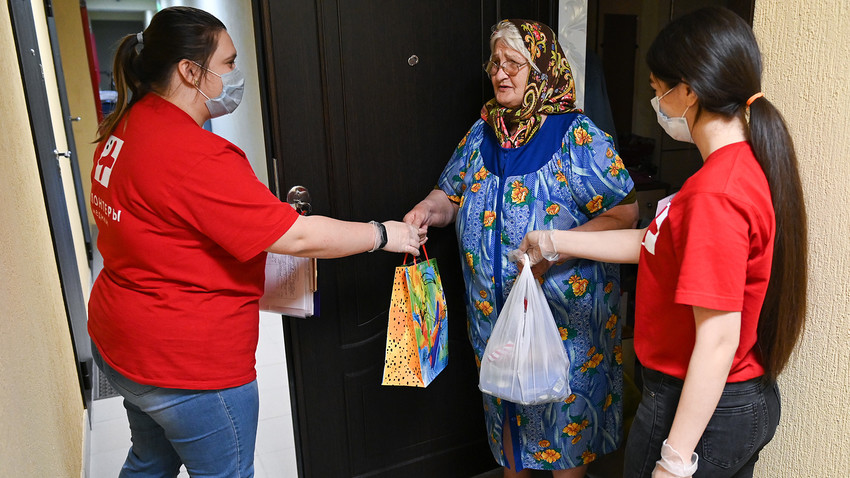
“Dear grannies of our house, my name is Gosha, I am from apartment N5. There is a coronavirus outbreak in our city. And you are at risk. So we ask you not to go out, but stay home. We, your neighbors, will take care of you. What do you need right now? We will bring you this for free. Take care!”
Mid-March, when most Russians aged more than 65 were asked to stay at home, posters with callings like this one above started to appear in the larger apartment blocks.
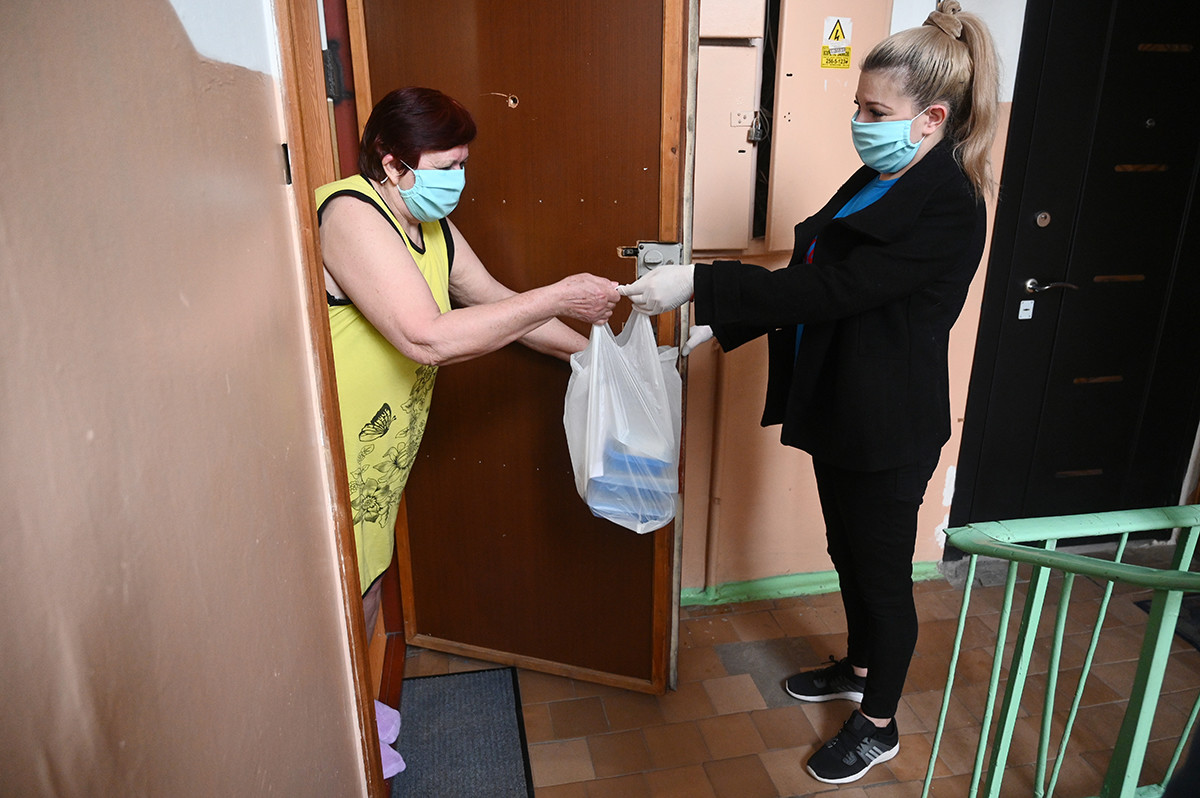
Moscow volunteers
Sofya Sandurskaya/Moskva AgencyBut as the coronavirus situation is getting worse, most of Russia’s regional authorities have decided to set strict quarantine measures and make people of all ages stay home. In this case, neighbors are not allowed to help anymore, and moreover, they could harm both themselves and those whom they help. So the volunteers are entering the scene. Well prepared, educated and with good protection.
Who are the volunteers
In Russia there are already a huge number of volunteer organizations. Roughly speaking, all of Russia’s regions, cities and all districts in big cities have their own branch of volunteers who have already been taught and prepared to act.
A nationwide movement called ‘We are together’ starts the week beginning March 30. It was arranged and prepared by the Association of Russian volunteers who are experienced in similar events. They have also created a website мывместе2020.рф with an easy form for volunteers to register and an easy form to apply for help.
All potential new volunteers who are brave enough to go out and help people are passing online interviews. Next step is checking if they have been abroad in the last 14 days. All volunteers have obligatory instructions and briefing, none act on their own. They also have means of protection, masks and gloves.
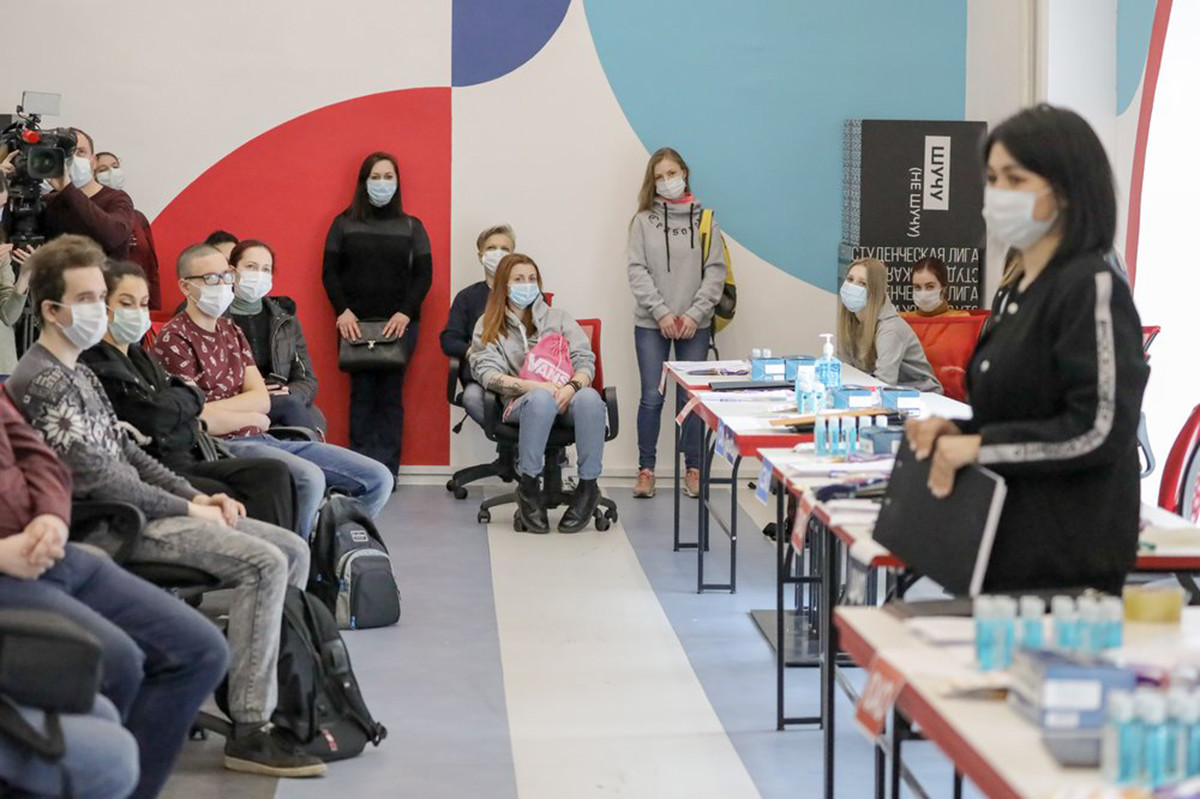
Instructions for volunteers
Sofya Sandurskaya/Moskva AgencyThe week from March 30 to April 5 was announced as non-working, while Russian universities have been put on holidays, so many students have actively joined the cause.
What do volunteers do
A big part of work is to take care of all the applications for help which increase every day. Coordinators take these calls from people and arrange work for the volunteers.
Just in Moscow, there are around 1.8 million of people over the age of 65, 20 percent of which are lonely people with no relatives support. Volunteers in Moscow are helping retired people in their districts - those who they can reach on foot without using public transportation.
Anyone can apply for help - and volunteers buy everything on a requestor’s list: food, medicines as well as other essential things.
They can also take out garbage, and moreover, volunteers can take dogs for a walk or bring pet food. Among the volunteers are also professional dog experts who handle complicated situations.
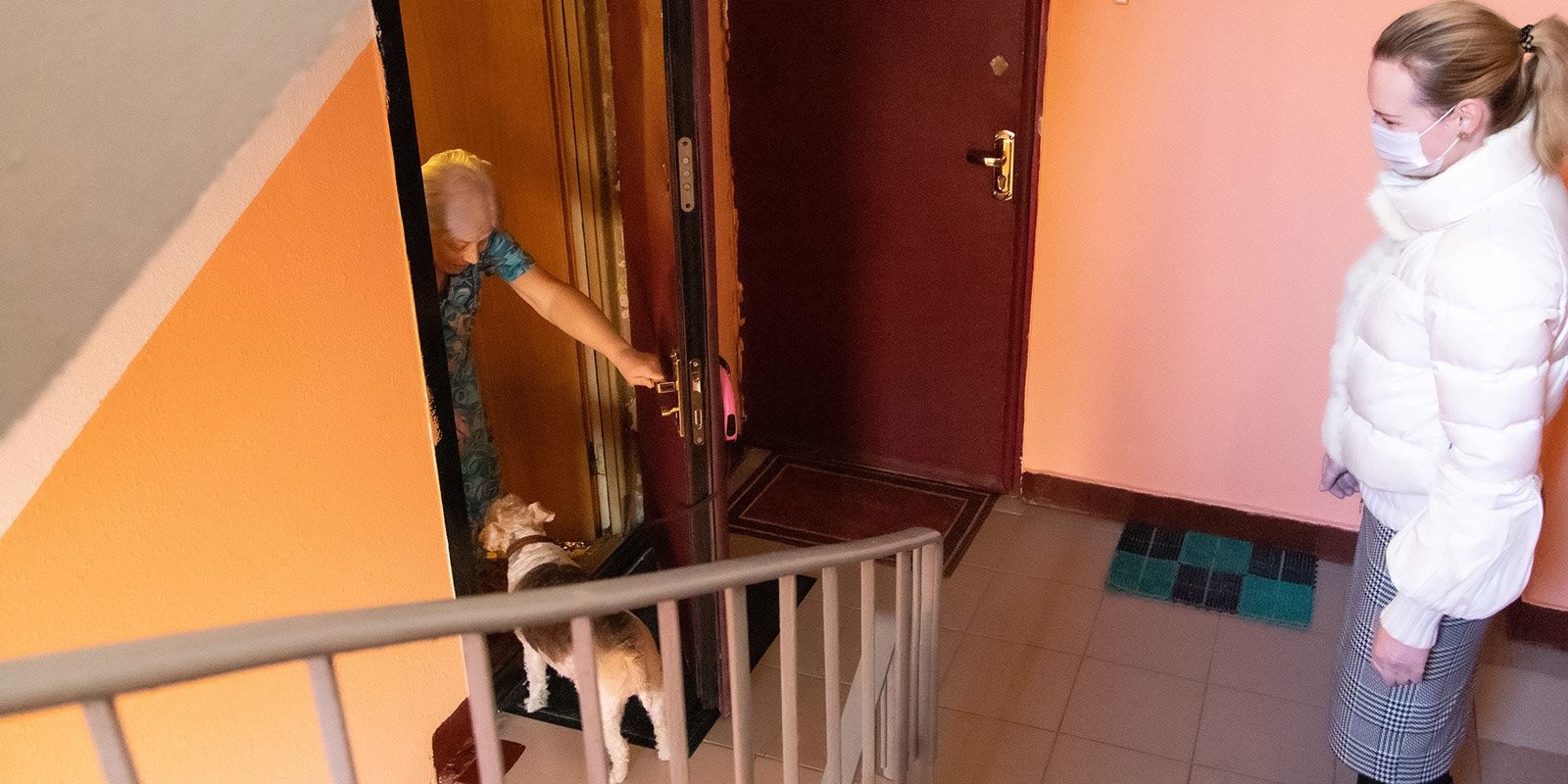
Many people who were involved in charity activities of different kinds are now changing their focus. For example, Albina from Tatarstan is now helping not only kids, but also retired people. “That is my civil duty - to help,” she says. Interpreters and people with cars are actively offering their help in a variety of ways - from transportation to teaching.
Another duty of a volunteer is to provide information to people in isolation. They have to make sure that those people have the most recent and most correct datas and that they are aware of authorities’ decrees and norms of behavior during the pandemic.
Support for medical staff
The Coronavirus situation has also demanded a new way of volunteering - helping doctors who are working clockwise and just don’t have time to eat.
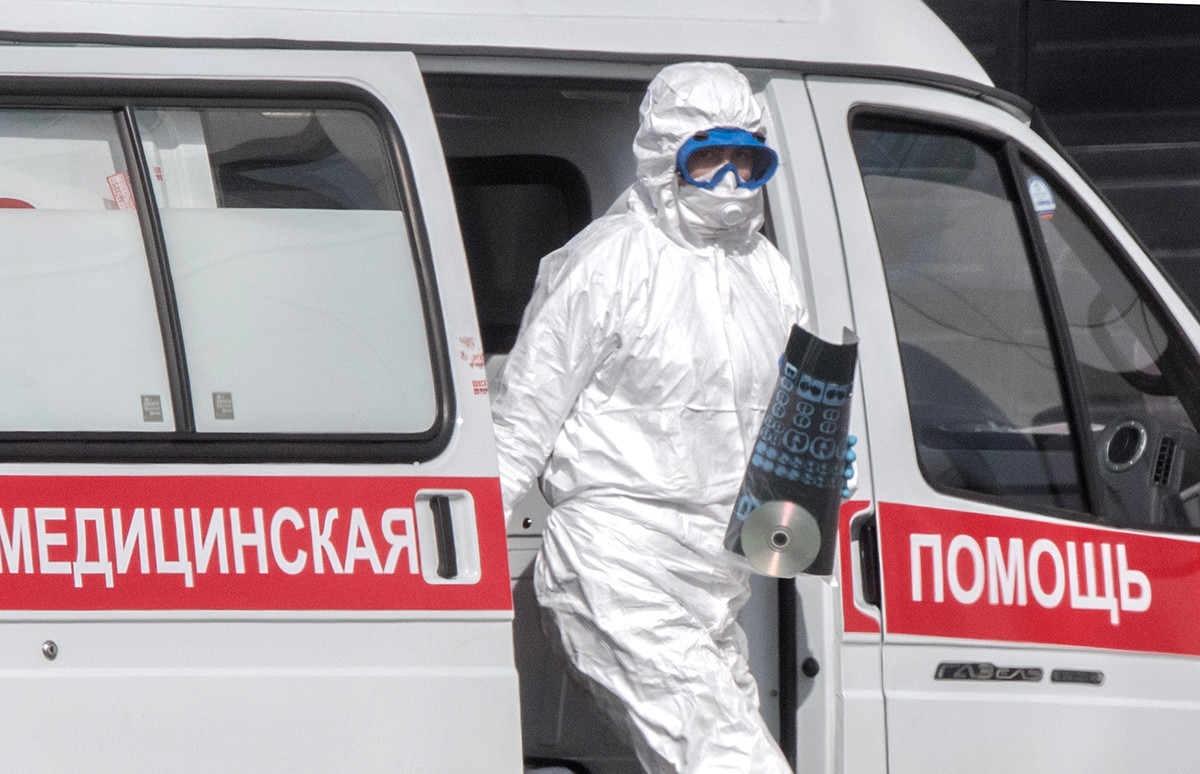
Emergency in Moscow
Ilya Pitalev/SputnikThe Yandex.Taxi service has allocated about thousand cars to help in medical equipment transportation. At the same time, food services are ready to supply free meals to doctors right at their working place.
When Muscovite Ludmila Golubkova found out that hospital workers lacked defense means, she initiated a crowdfunding and gathered 130 thousand rubles (ca. $1,600) and bought protection suits, gloves, masks and glasses and sent them out to several hospitals. (You can also help by donating some money here).
She has also brought together psychologists to help those doctors overworking and being constantly in danger.
Several organizations to help medics have been arranged in the regions. Volunteers take care of citizen calls and give instructions on how to act in different cases, so that people do not disturb doctors that have emergency coronavirus work.
Recently, the head doctor of Moscow’s main COVID hospital (who was also recently diagnosed positive) opened to everyone access to a professional chat group, where medical workers are discussing their professional problems. Hundreds foreign doctors have joined it - and a group of volunteer translators who are helping people from different countries share their experiences.
If using any of Russia Beyond's content, partly or in full, always provide an active hyperlink to the original material.
Subscribe
to our newsletter!
Get the week's best stories straight to your inbox